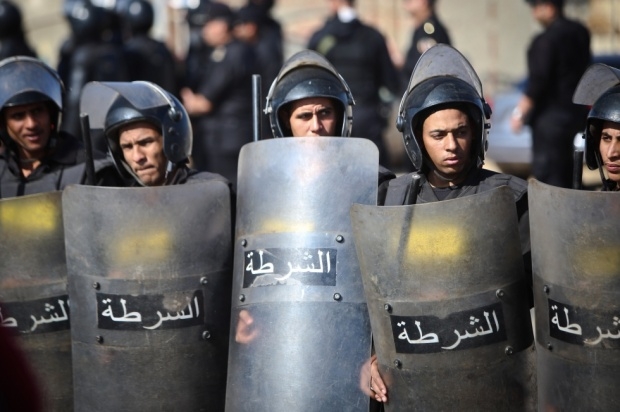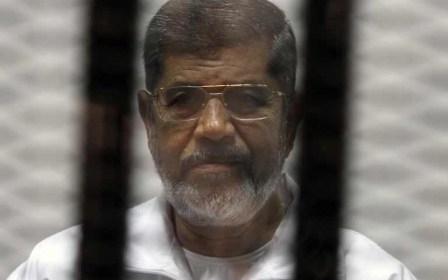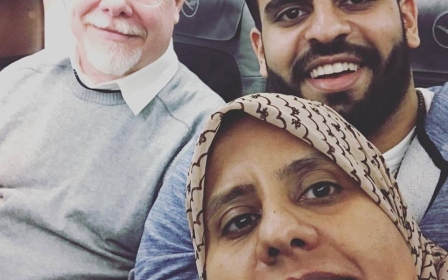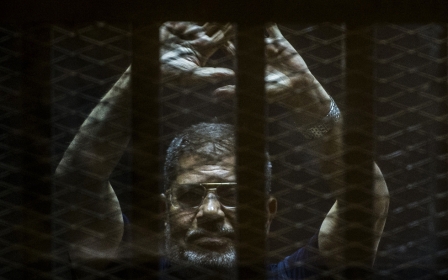African Union calls on Egypt to 'immediately' suspend death sentences
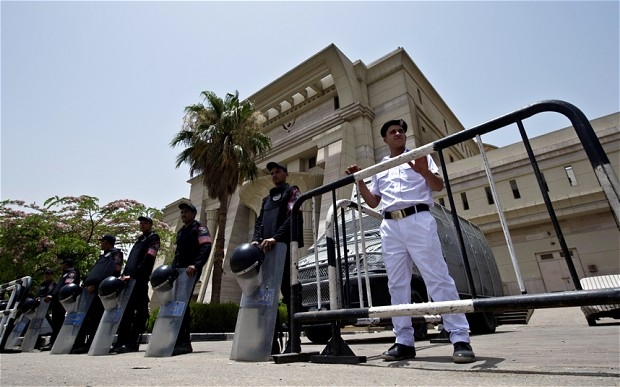
The African Union has called on the Egyptian government to repeal the death sentence in 20 new cases.
The African Commission on Human and Peoples Rights, a body within the AU, has urged the Egyptian government to "immediately suspend" the death sentences.
This measure came after the Egyptian Freedom and Justice Party (FJP), the party of ousted former President Mohamed Morsi, sent a complaint to the commission on behalf of the prisoners set to be executed.
The Egyptian authorities have entirely ignored the Commission's moratorium on the death penalty by failing to observe the defendants' right to a fair trial
- Complaint
The FJP called on the commission to intervene and order an immediate suspension of the death sentences.
"The Egyptian authorities have entirely ignored the commission's moratorium on the death penalty by failing to observe the defendants' right to a fair trial as per the guarantees included in the African Charter and other international treaties," the complaint reads.
The complaint also claimed that evidence was gained via confessions through torture and denial of the right of access to lawyers. In one case, evidence in the complaint shows, one of those sentenced to death was in custody at the time of a bomb attack he was alleged to have carried out.
The prisoners have all had their death sentences confirmed and are without further rights of appeal. Sixteen face imminent execution, the lawyers representing the case have said.
The death sentences were imposed in trials following the military coup in 2013 which saw the removal and detention of Egypt's first democratically elected president.
The Egyptian government has been criticised for its apparent lack of regard for human rights. Human Rights Watch, in its 2017 annual report, said that "Members of the security forces, particularly the Interior Ministry’s National Security Agency, continued to routinely torture detainees and forcibly disappeared hundreds of people with little or no accountability for violations of the law."
Egyptian President Abdel Fattah el-Sisi was notified of the measures in a letter sent to him on 29 November by the African Commission.
The commission's letter to Sisi sets out the body's intention to fully investigate the allegations made in the complaint and asks the Egyptian government to provide its report on the implementation of the suspension within 15 days of the letter.
The FJP's complaint was sent to the commission by the London-based ITN solicitors. Tayyab Ali, a partner at ITN, said he was pleased with the commission's decision to investigate the matters raised by the FJP's complaint.
"All Egyptians are entitled to the legal protections guaranteed in the African Charter," Ali said in a statement.
"This principle is all the more important where the right of life is at stake."
Morsi remains in detention, along with hundreds of others who protested against the coup. Last year, an Egyptian appeals court overturned a death sentence handed to Morsi.
In 2014, an Egyptian court sentenced 529 individuals to death following a mass trial that lasted less than two days and was condemned for widespread irregularities.
The FJP at the time had previously sent a request to the commission to intervene in the death sentences. This led to the Egyptian authorities suspending those sentences.
New MEE newsletter: Jerusalem Dispatch
Sign up to get the latest insights and analysis on Israel-Palestine, alongside Turkey Unpacked and other MEE newsletters
Middle East Eye delivers independent and unrivalled coverage and analysis of the Middle East, North Africa and beyond. To learn more about republishing this content and the associated fees, please fill out this form. More about MEE can be found here.


